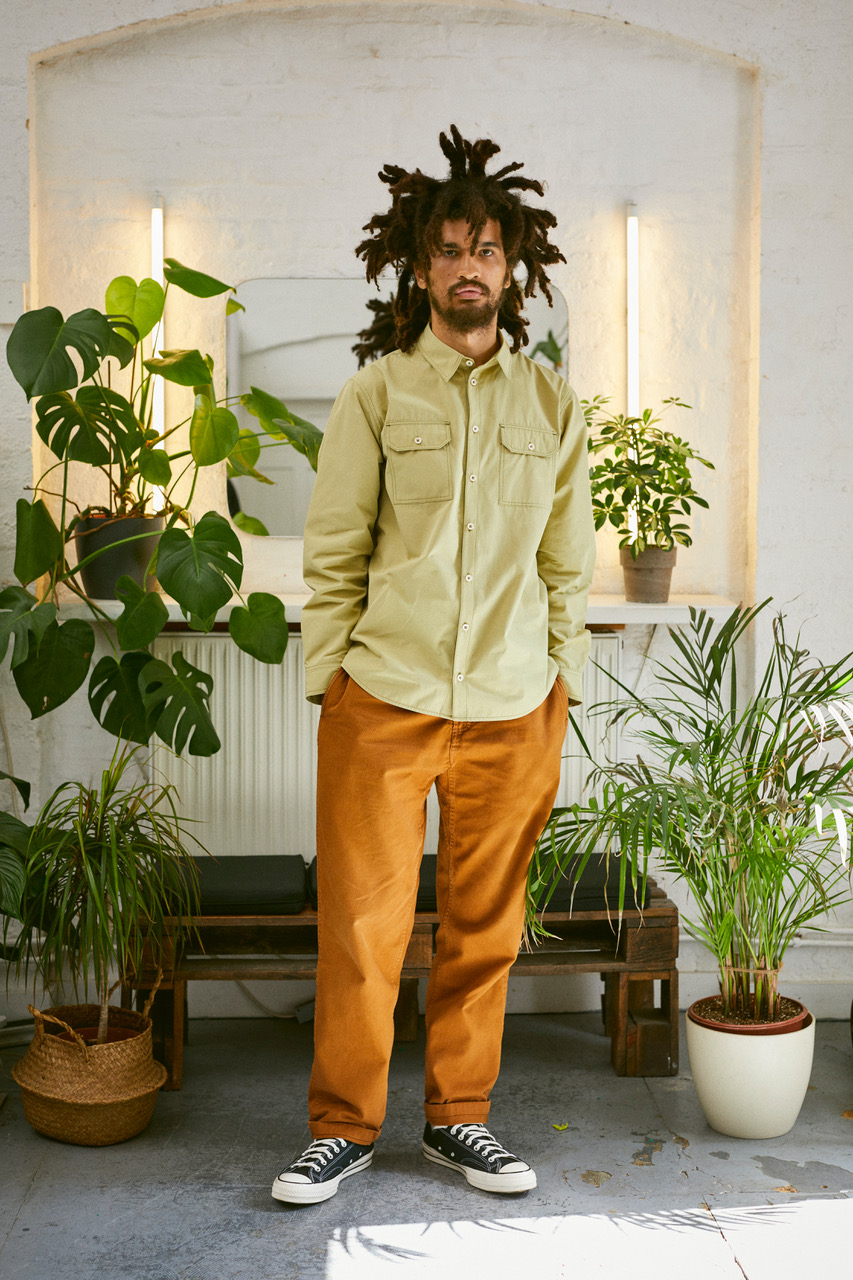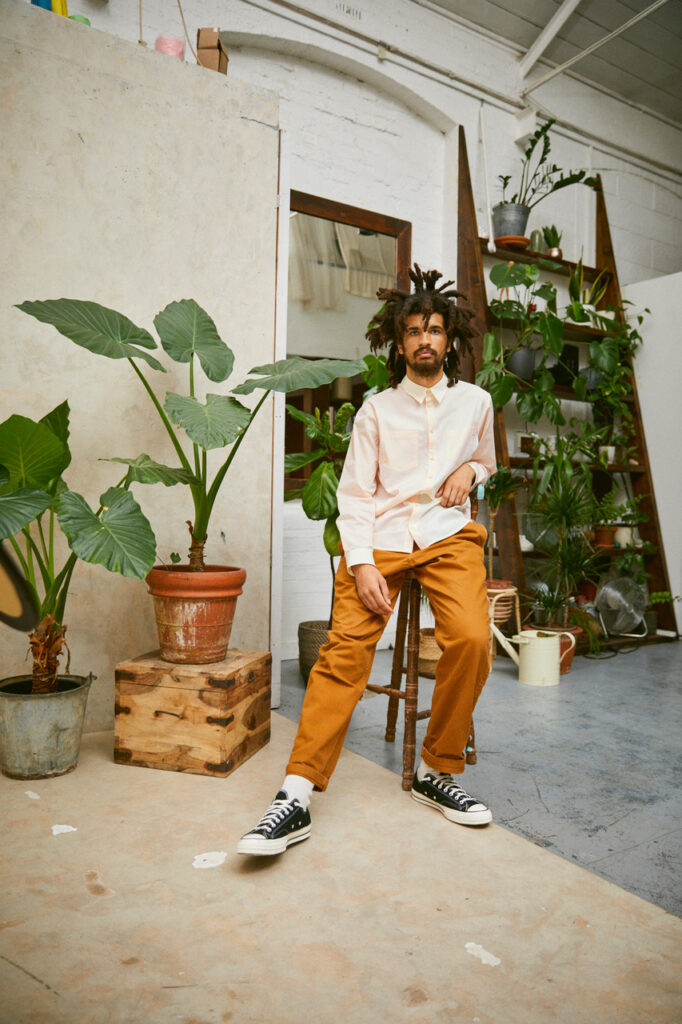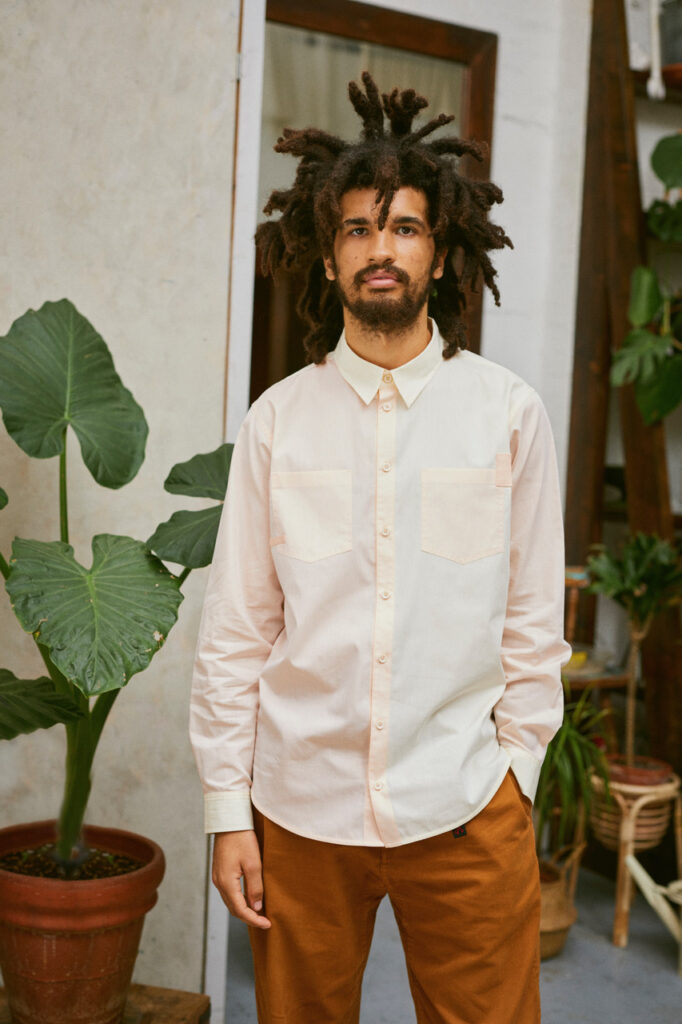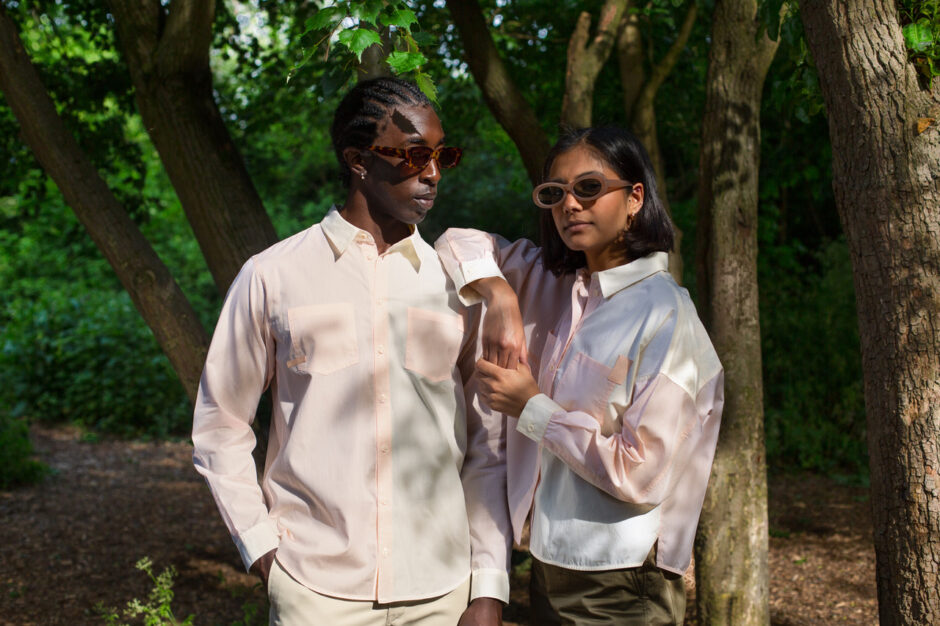SAYWOOD STUDIO: DEADSTOCK SHIRTING FOR AW2022
Their first dip into the world of menswear sees Saywood Studio design a range of deadstock shirting for AW 2022. These made to last shirts are built on the foundations of the first Saywood collection and are the ultimate wardrobe staples.
Created in 2020 by Harriet Saywood-Bellisario, who graduated from the London College of Fashion before working at Paul Smith, Richard Nicoll and Label/Mix, the starting points each season are classics contemporised with unexpected details. Each collection, they deliver beautiful edits of wardrobe essentials; for our first capsule they’ve focused on shirting. Both modern and timeless, each piece is made to be worn and re-worn.
At the heart of our story is a desire to reconnect with the people and processes behind what we wear, and in doing so, press pause on throwaway fashion. The collections are small, built on quality pieces with longevity in mind. They take a responsible approach working with sustainable fabrics when possible, and local makers where possible. The upshot? Uniquely designed, thoughtfully made pieces you’ll want in your life, always.

Saywood designs pieces you’ll want in your life, always – with an eye on the world we live in, always. They craft their collections through the lens of longevity and circularity to reduce our environmental impact. Made in small volumes, our emphasis is on quality designs that last, but leave as little mark as possible on our planet through all stages of their lifecycle, in every way. The journey towards this sustainable vision involves making more responsible choices, from the fabrics used, to the people they collaborate with.
DEADSTOCK COTTON FROM RIOPELE
Their deadstock cotton comes from Riopele. Based in Portugal, the mill has an eco-friendly production ethos, including water and waste recycling. Parts of its processes are also powered using solar energy. In recognition of its efforts towards sustainable production, it is certified STeP by OEKO-TEX® Level 3 – the highest level.
RECYCLED COTTON YARN FROM CANCLINI
Recycled fibres have a better environmental footprint – reusing what we already have is always better than creating something new – which is why Saywood prefer to use recycled cotton yarns from Canclini. Little water is required during production in the mill, which operates on solar energy. Its cotton is also certified Global Recycled Standard, and STANDARD 100 by OEKO-TEX®, which means it’s free from chemicals harmful to your skin.
JAPANESE DENIM
Saywood uses Premium Japanese Denim, from Italian fabric mill, Canclini, who work with traditional Japanese denim mills to weave their denim range. The denim is from the Okayama district in Japan, known as the ‘birthplace of denim’. This particular denim is produced in the city of Ibara, where a small craft enterprise produces this premium and highly esteemed denim. Produced on traditional shuttle looms, through the use of ancestral handcraft work, highly skilled weavers create this denim exclusively for this mill. The traditional looms are narrower, creating the Japanese selvedge denim, and dyed with Japanese natural indigo dye, which creates a deeper, richer tone, like the Saywood rich indigo denim of the Etta Shirtdress.

SUPIMA COTTON
Their mill in Italy, Canclini, works only with Supima cotton. Supima is a branded cotton; it is extra-long staple fibres, which are extremely durable, soft and retain colour. The Supima cotton is grown exclusively in the US, by a small collective of 500 family run farms, who have high ethical and safety standards. The cotton Canclini uses in particular is grown in the California state. The Supima farmers use satellite technology to monitor and promote soil health, keeping water usage low, and promote biodiversity and fostering wildlife through their farming techniques.
OTHER COTTON
Cotton is a desirable fabric, but current production methods are environmentally unsustainable, from the amount of water it consumes to its use of pesticides. To that end, we use recycled, deadstock or organic cotton as much as possible. When it’s not – usually because we can’t bulk order in the quantities required by manufacturers as we’re a small company – we work with mills that are working towards better environmental practices, including those making the switch to recycled or organic cotton.
CELLULOSE FIBRES
Cellulose fibres are usually made from wood pulp. Their mill works with two companies offering fabrics woven from these fibres: Lenzing and Eastman.From Lenzing, we use Lenzing Viscose and Lenzing Lyocell, which are superior to. the conventional cellulose versions. Why? Because they come from sustainable forestry, and are certified compostable and biodegradable. Lenzing Lyocell is especially noteworthy, as it’s been produced in a closed loop system; while Lenzing Viscose produces sodium sulphate as a by-product that is then used in detergents, glass and food.Eastman specialises in Greencel, an FSC-certified cellulose acetate that’s biodegradable and can be reused countless times. In addition, Greencel’s production has very low water consumption and uses no harmful chemicals, with 98% of the Acetone recovered for reuse.

CODELITE® AND COROZO BUTTONS FROM COURTNEY & CO
Their love for designs that respect the planet goes down to the details. All buttons are from either Codelite®, a natural material derived from milk protein that’s biodegradable, or corozo, otherwise known as vegetable ivory. A nut from the Tagua palm which grows in South America, corozo can only be harvested once it naturally falls to the ground, making it a more responsible choice.They come from Courtney & Co, a British heritage buttons company with a forward-thinking approach to sustainability: leftover pulp from corozo goes to beauty manufacturers and then turned into natural microbeads; buttons are dyed using eco-friendly dyes, and re-dyed in black if colours come out incorrectly so that they can still be used; trees are planted in community gardens and orchards across the UK to offset its carbon footprint created through importing corozo.







